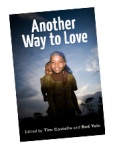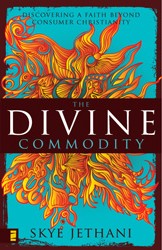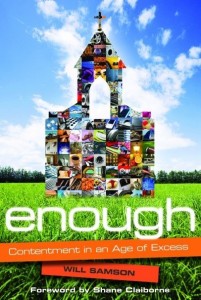Back in 2007 I wrote an article on the decay of western culture, in which I mentioned the New Economics Foundation’s Happy Planet Index. This is an index that addresses the relative success or failure of countries in supporting a good life for their citizens, while respecting the environmental resource limits upon which all our lives depend. Australia was ranked 139th out of 178, which suggested that Jesus was right when he said that life does not consist in the abundance of one’s possessions.
 Well, the NEF has published its latest version of the Index, and it is indeed quite prophetic in its call for a new way of living in a world in which the earth’s resources are being depleted at a simply alarming rate. The report begins by stating that,
Well, the NEF has published its latest version of the Index, and it is indeed quite prophetic in its call for a new way of living in a world in which the earth’s resources are being depleted at a simply alarming rate. The report begins by stating that,
“In an age of uncertainty, society globally needs a new compass to set it on a path of real progress. The Happy Planet Index (HPI) provides that compass by measuring what truly matters to us – our well-being in terms of long, happy and meaningful lives – and what matters to the planet – our rate of resource consumption.”
It goes on to say that “we are still far from achieving sustainable well-being, and puts forward a vision of what we need to do to get there.”
Some of the interesting results to come out of the study we as follows:
- The highest HPI score is that of Costa Rica (76.1 out of 100). As well as reporting the highest life satisfaction in the world, Costa Ricans also have the second-highest average life expectancy of the New World (second only to Canada). All this with a footprint of 2.3 global hectares. Whilst this success is indeed impressive, Costa Rica narrowly fails to achieve the goal of ‘one-planet living’: consuming its fair share of natural resources (indicated by a footprint of 2.1 global hectares or less).
- Of the following ten countries, all but one is in Latin America.
- The bottom ten HPI scores were all suffered by sub-Saharan African countries, with Zimbabwe bottom of the table with an HPI score of 16.6 out of 100.
- Rich developed nations fall somewhere in the middle. The highest-placed Western nation is the Netherlands – 43rd out of 143. The USA comes a long way back in 114th place. Australia comes 102nd, a slight improvement on its 139th in the original study.
- Many of the countries that do well are composed of small islands (including the Dominican Republic, Jamaica, Cuba and the Philippines).
- No country successfully achieves the three goals of high life satisfaction, high life expectancy and one-planet living.
- It is possible to live long, happy lives witha much smaller ecological footprint than found in the highest-consuming nations. For example, people in the Netherlands live on average over a year longer than people in the USA, and have similar levels of life satisfaction – and yet their per capitaecological footprint is less than half the size (4.4 global hectares compared with 9.4 global hectares). This means that the Netherlands is over twice as ecologically efficient at achieving good lives.
- More dramatic is the difference between Costa Rica and the USA. Costa Ricans also live slightly longer than Americans, and report much higher levels of life satisfaction, and yet have a footprint which is less than a quarter the size.
What this study clearly shows is that our way of living in the (still) affluent west is unsustainable, as if we needed reminding. Brian McLaren calls our way of living the ‘suicide machine’, because it is a way of living that is literally killing us and the rest of the planet. His brilliant book, Everything Must Change, explains this in more detail.
The study also highlights what many people have been saying for a long time now. Consider this quote from Thomas Friedman, a long-time advocate of growth and globalisation:
“Let’s today step out of the normal boundaries of analysis of our economic crisis and ask a radical question: What if the crisis of 2008 represents something much more fundamental than a deep recession? What if it’s telling us that the whole growth model we created over the last 50 years is simply unsustainable economically and ecologically and that 2008 was when we hit the wall – when Mother Nature and the market both said: ‘No more'”
Jesus was indeed right when he warned of greed which is idolatry. Our whole way of living is based on greed and it is not just a doom-and-gloom killjoy remark to say that it is killing us. It is an undeniable fact. T. Jackson, in a NEF publication called ‘Chasing Progress’ has said that “every society clings to a myth by which it lives. Ours is the myth of economic growth.” The Happy Planet report has an excellent section on this myth in which it discusses the history of the philosophy behind economic growth and how it came to prominence.
 Many respected social thinkers have long put forward the argument that a religious outlook on life is beneficial to a peaceful and harmonious society. A society that places ethical values and a positive outlook for the future, often based on a religious faith, is a society that is based on a solid foundation. The Happy Planet report echoes this by saying that even a magazine such as The Economist says that
Many respected social thinkers have long put forward the argument that a religious outlook on life is beneficial to a peaceful and harmonious society. A society that places ethical values and a positive outlook for the future, often based on a religious faith, is a society that is based on a solid foundation. The Happy Planet report echoes this by saying that even a magazine such as The Economist says that
“attempting to explain why well-being does not keep rising in line with consumption, [The Economist] suggests that ‘there are factors associated with modernisation that, in part, offset its positive impact.’ Specifically, it argues that alongside consumption growth, [a] concomitant breakdown of traditional institutions is manifested in the decline of religiosity and of trade unions; a marked rise in various social pathologies (crime, and drug and alcohol addiction); a decline in political participation and of trust in public authority; and the erosion of the institutions of family and marriage.”
An article in The Age a few years ago showed that, if all people in the world lived like Australians, we would need 4 planets to maintain our lifestyle. And of all the states in Australia, my home state of Victoria was the worst of the lot. That is mainly due to our reliance on brown coal to create electricity. We have a lot to change, but happily, there are signs that change is happening. The Happy Planet report tells of incidences such as a community in Scotland sharing ownership of a new windfarm with developers, a ‘Big Lunch’ being arranged on streets across Britain to bring neighbours together, a community in a council estate in Luton partnering up with tea-growers in Southern India to ensure trade that is even fairer than fair trade. Things are happening. As Gandhi famously said, we must be the change we want to see in the world.
Jesus said the kingdom of God is among you. Through Jesus, the kingdom is invading history, and the good news is that all are invited to be a part of it. Heaven on earth will only happen when the resurrected Jesus returns to put the world to rights. But in the meantime, we have the absolute privilege of laying the building blocks. That is why everything we do matters. Every act of kindness, every act of justice. It all matters because when we do it in the name of Jesus, it has cosmic and eternal implications. As Ross Langmead sings,
“the kingdom is coming, a kingdom of peace. Beat swords into ploughs for fighting will cease. Justice will prosper, love will be king. Peacemakers will be able to sing that this is God’s earth and it has been worth all the pain.”
The Happy Planet report is a huge step in showing us how our current way of living is not of the kingdom, but it also shows some of the things we can do to help fulfil Jesus’ wish that the kingdom come on earth as it is in heaven.
 The documentary, called Outbreak, detailed events as they unfolded hour by hour. As the viewer was taken through the day and shown (colour) footage, you could imagine the sense of anxiety that people felt as their worst fears were being realised. You could almost feel it.
The documentary, called Outbreak, detailed events as they unfolded hour by hour. As the viewer was taken through the day and shown (colour) footage, you could imagine the sense of anxiety that people felt as their worst fears were being realised. You could almost feel it. The issue is though, do we see the urgency? On 3 September 1939 there was no denying the danger that Europe was facing. Climate change though is a much slower mover than war and so we in the West don’t see the urgency just yet. However, if you live in parts of Africa, where you are already seeing the effects of a changing climate, you will be filled with not only a sense of urgency but quite probably a strong sense of despair and anger as you realise you are not only powerless to make real change, but that you also see the nations who really can do something about it continuing along their merry way as if there was no problem. It really does seem like we in the west are rearranging the deck chairs on the Titanic.
The issue is though, do we see the urgency? On 3 September 1939 there was no denying the danger that Europe was facing. Climate change though is a much slower mover than war and so we in the West don’t see the urgency just yet. However, if you live in parts of Africa, where you are already seeing the effects of a changing climate, you will be filled with not only a sense of urgency but quite probably a strong sense of despair and anger as you realise you are not only powerless to make real change, but that you also see the nations who really can do something about it continuing along their merry way as if there was no problem. It really does seem like we in the west are rearranging the deck chairs on the Titanic.











